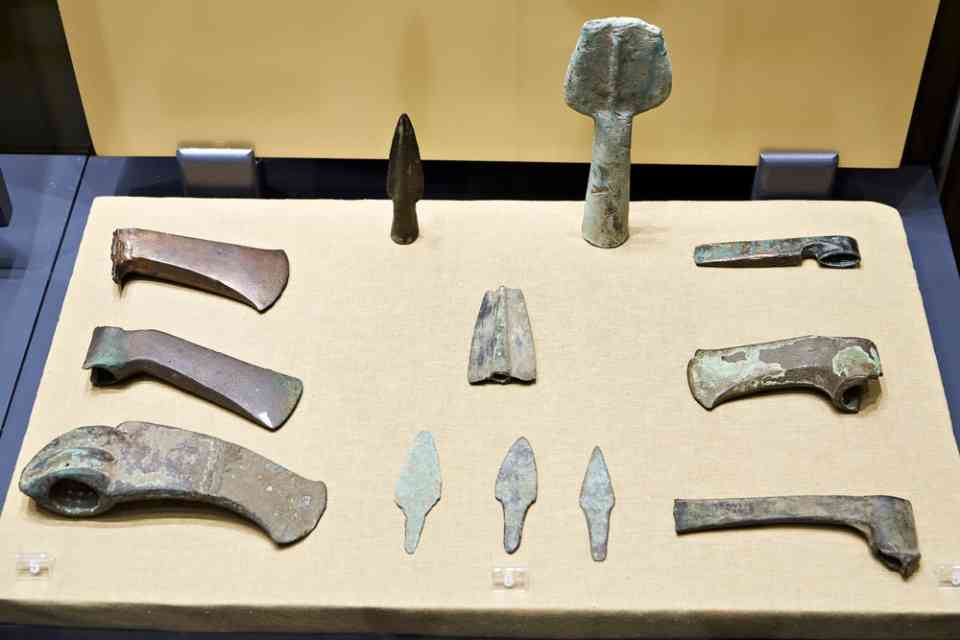Bronze Age Economics: A Prehistoric Market Economy

A comprehensive analysis of 20,000 metal objects from Bronze Age Europe suggests that human economic behavior has remained remarkably consistent over the past 3,500 years. This research challenges the traditional view that elite control dominated Bronze Age economies and instead proposes that market economy principles were in play much earlier than previously thought.
Bronze Age Europeans, spanning from 3300 to 800 BC, engaged in economic activities similar to those of today, indicating that the roots of the market economy are ancient. Nicola Ialongo of Aarhus University, Denmark, emphasized that the Bronze Age was not an idyllic period where peasants lived under the benevolence of lords. Instead, it was a time when people managed families, maintained social networks, participated in marketplaces, and worked to make ends meet.
Unlike meticulous record-keepers like the Mesopotamians, Bronze Age Europeans left behind metal fragments, known as hoards, which provide insights into their economic behavior. Researchers Ialongo and Giancarlo Lago from the University of Bologna analyzed over 20,000 metal objects from hoards in Italy, Switzerland, Austria, Slovenia, and Germany. Around 1500 BC, these metal pieces began to standardize in weight, suggesting they were used as a form of pre-coinage money.
Ialongo noted that this standardization allows for new modeling of ancient economic systems, revealing patterns previously overlooked. The team discovered that the weight distribution of these objects mirrors the spending patterns of a modern Western household, where small, everyday expenses dominate, and larger expenditures are rare. This finding aligns with modern economic behavior, where wallets contain many small-denomination notes and few high-value ones.
The research suggests that Bronze Age economies were regulated by market forces of supply and demand, with individuals participating according to their earnings. This hypothesis challenges Karl Polanyi’s influential 1940s view, which posited that modern monetary economies were distinct from ancient barter and gift exchange systems.
Richard Blanton from Purdue University supports the study, stating it will likely spark discussions among archaeologists and economic anthropologists who have long held misconceptions about the antiquity of market economies. He believes the paper offers new perspectives on the function of bronze hoards as units of exchange.
However, Erica Schoenberger from Johns Hopkins University remains skeptical. She cautions against assuming that pre-modern societies used money in familiar ways, citing medieval English peasants who primarily used money to meet lords’ demands rather than for personal transactions.
Lago and Ialongo hope their findings will inspire similar research in other regions and cultures, suggesting that market economies may have naturally emerged across different times and places. They argue that if the evidence can be explained by a market economy model, there is no need to assume a more complex explanation.
Ialongo concluded that while their research does not definitively prove the existence of a Bronze Age market economy, it challenges the prevailing assumption that it did not exist. He questioned why the simplest explanation—a market economy—should be dismissed if it fits the observed evidence.
Have you read?
Most Heavily Armed Tanks Ever Built By Russia.
Countries with the most F-15 Eagle fighter jets.
Countries with the Most F-35 Lightning II Stealth Fighter Jets.
The Role of Chief Artificial Intelligence Officers (CAIOs) – Are They Needed and What Impact Can We Anticipate?
5 Ways to Ensure You Have Cash Flow When Starting a Business.
Bring the best of the CEOWORLD magazine's global journalism to audiences in the United States and around the world. - Add CEOWORLD magazine to your Google News feed.
Follow CEOWORLD magazine headlines on: Google News, LinkedIn, Twitter, and Facebook.
Copyright 2025 The CEOWORLD magazine. All rights reserved. This material (and any extract from it) must not be copied, redistributed or placed on any website, without CEOWORLD magazine' prior written consent. For media queries, please contact: info@ceoworld.biz








